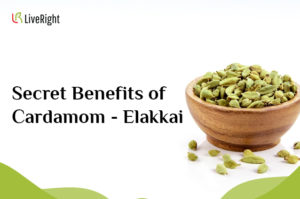Last updated on August 21, 2024 by Dr. Subashri Thanigaivel

Parkinson disease is a degenerative condition prevalently found in the elderly population. The condition comes with an insidious onset with slow and steady progress. At the same time, Parkinson disease also leads to severe morbidity as the age progresses. It possesses a classical triad of tremors, bradykinesia and rigidity. This triad even includes the difference in gait and postural stability problems.
An Ayurvedic condition known as ‘Vepathu’ can be correlated with Parkinson’s disease. Vepathu is generally characterized by involuntary movements of all parts of the body or only head. Imbalanced or impaired Vata dosha is the pradhana dosha in this disorder. Incidentally, the Vata dosha is also driving force which mobilizes the nervous system
This condition is caused by the degeneration of pigmented neurons in the brain. The production of dopamine levels will decrease leading to motor dysfunction. The other aetiologies of the disease is a genetic factor, accelerated ageing, environmental toxins, drug-induced, post infections, brain injury etc.
The major indications are:
1.Rigidity (Sthamba).
2.Resting tremors (Vepathu).
3.Bradykinesia
4.Absence of arm swing while walking.
5.Urinary incontinence.
6.Lack of posture adjustment.
7.Drooping of saliva due to infrequent swallowing movements.
8.Body pain.
Parkinson disease treatment in Ayurveda
1.Take food rich in antioxidants, fibre and vitamins.
2.Fibre-rich foods may ease constipation and helps in proper digestion.
3.Choose a diet with plenty of grain products, complex carbs, and minerals to fuel your body.
4.Avoid taking deep fried foods and foods which produce dryness because it will vitiate Vata Dosha.
5.Avoid foods which produce coldness to the body.
6.A diet with too much sugar increases the calories and reduces nutrients.
Yoga:
1.Regular practice of yoga will be very helpful for Parkinson patients, but it should be done under the proper guidance of a yoga practitioner.
2.Pranayama – Anuloma Viloma yogic breathing helps in calming the body and mind, especially the nervous system.
3.Asanas for postural imbalances and tremors – Tadasana, Vrksasana, Ardhachandrasana, Utthita hastapadangushtasana etc
4.Practising deep relaxation techniques through Yoga Nidra.
Parkinson disease is the result of living out of harmony with one’s prakirti or body constitution. Ayurveda gives an understanding about where the person is out of balance in physical, emotional and spiritual level.
The Parkinson disease treatment in Ayurveda goes beyond the pharmacological aspects. It lays its special emphasis on lifestyle, regimen and yogic practice that ultimately shapes our internal and external energies.
Connect with our LiveRight doctors today to attain wellness and manage the onslaught of Parkinson disease in an effective way.



